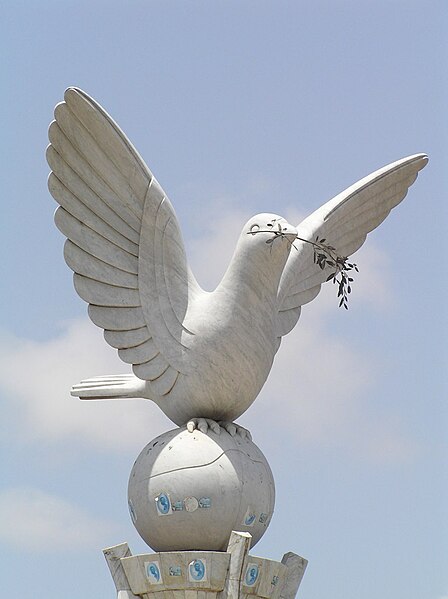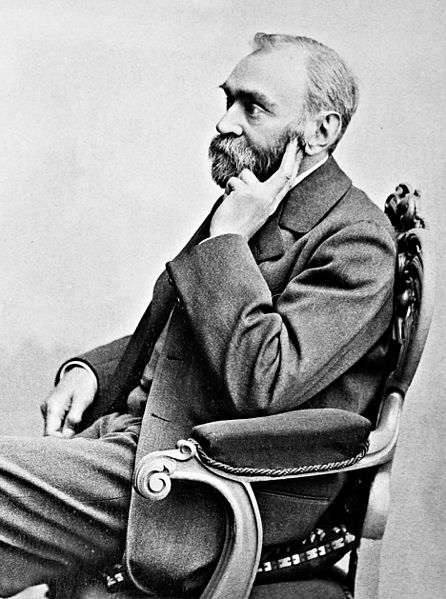Peace means societal friendship and harmony in the absence of hostility and violence. In a social sense, peace is commonly used to mean a lack of conflict and freedom from fear of violence between individuals or groups.
Peace dove statue in Lomé, Togo, Africa. The dove and the olive branch are the most common symbols associated with peace.
Statue of Eirene, goddess of peace in ancient Greek religion, with the infant Plutus
Croeseid coin of Croesus (c. 550 BCE), depicting the Lion and Bull — partly symbolizing alliance between Lydia and Greece, respectively
Henry Dunant was awarded the first Nobel Peace Prize for his role in founding the International Red Cross.
The Nobel Peace Prize is one of the five Nobel Prizes established by the will of Swedish industrialist, inventor, and armaments manufacturer Alfred Nobel, along with the prizes in Chemistry, Physics, Physiology or Medicine, and Literature. Since March 1901, it has been awarded annually to people who have "done the most or the best work for fraternity between nations, for the abolition or reduction of standing armies and for the holding and promotion of peace congresses." The Oxford Dictionary of Contemporary History describes it as "the most prestigious prize in the world."
Jimmy Carter's 2002 Nobel Peace Prize
Alfred Nobel
The Norwegian Nobel Institute in Oslo, Norway
The 14th Dalai Lama and Archbishop Desmond Tutu, Nobel Peace Prize laureates








